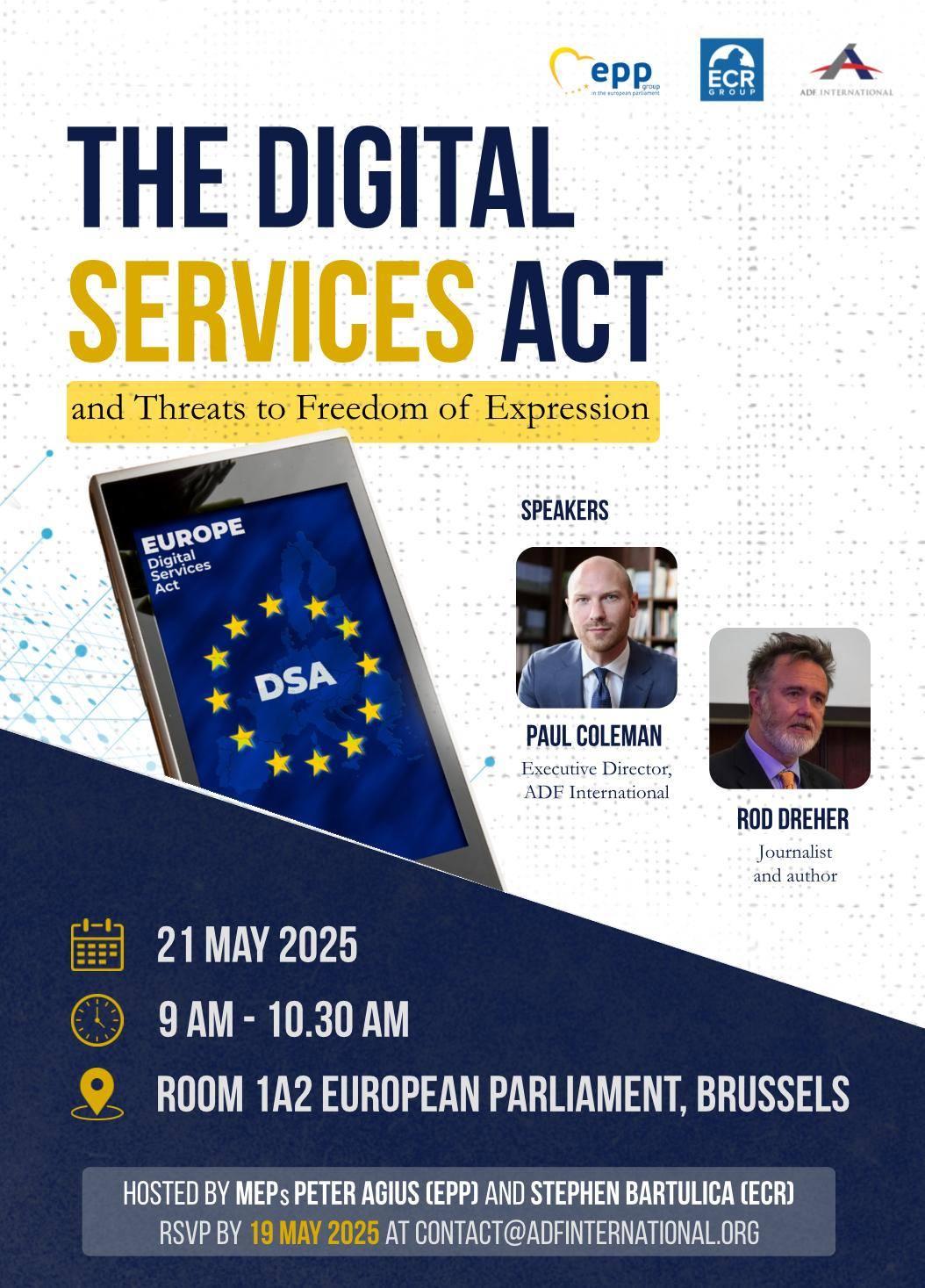
From left to right Henk Jan van Schothorst, MEP Bert-Jan Ruissen (SGP) and Wilmer Hak in the European Parliament
By Henk Jan van Schothorst and Wilmer Hak
The DSA aims to regulate the online services industry. Media companies such as Google, TikTok and YouTube must bear more responsibility for the content posted on their platforms. Messages, photos or videos showing acts that are illegal in everyday life should become so online.
Shield for ‘European Democracy’
The DSA is part of the European Commission's megalomaniacal plan to form a “shield” for democracy. This shield, consisting of a package of legislation and policy instrument, should protect citizens from misinformation and foreign influence. Since media platforms can play a crucial role in disseminating this, they must be regulated.
One way the DSA does this is by requiring websites, apps and media platforms to detect and remove hate speech and illegal images faster. Illegal gambling and porn sites, online fraud and anti-Semitic statements can thus be dealt with faster.
However, despite sounding promising and necessary in certain areas, experts in Brussels are calling on Christians to prepare for “polite Christian persecution”. SGP MEP B.J. Ruissen also argued that the DSA has the potential to put “fundamental freedoms” at risk.
Trusted reporters
These concerns stem from the fact that the DSA wants media to be monitored by trusted flaggers. These are NGOs, knowledge institutes or quasi-governmental bodies that specialise in different areas, such as child abuse. When such a flagger posts a notification to a post, the platform or the owner of the app or website must assess this content for illegality as soon as possible. If that is indeed the case, it must be blocked or removed by the platform on penalty of fine.
This gives flaggers a dangerously large influence on freedom of expression. However, while most countries appoint politically neutral flaggers, one was appointed in Austria who promotes unlimited sexual freedom for children. When such a flagger has to determine which posts or websites contain hateful content, freedom of religion can be seriously compromised. Religious views on marriage between a man and a woman, for example, could be qualified as discriminatory and thus removed.
Illegal content
These concerns are reinforced by the fact that the DSA does not define exactly what constitutes hateful, illegal or inaccurate content. Whereas international law does not criminalise the dissemination of untrustworthy or offensive information per se, the DSA argues that illegality should be judged by national laws. In many European countries, these laws have already become more arbitrary around religious freedom, let alone when they are to be interpreted by flaggers or platforms like Google.
The ongoing case of Ms Räsänen in Finland illustrates this in particular. The prosecutor here argued that posting a Bible text and publishing a flyer about the Biblical definition of marriage was offensive and discriminatory. The word “sin” was considered repugnant in this regard. With this, will online sermons soon be marked and censored as hateful and illegal?
It was therefore not surprising that US Vice President J.D. Vance sounded the alarm at the Munich Security Conference. ‘In Britain and across Europe, free speech, I fear, is in retreat,' he stated. He also mentioned explicitly that the freedom of religion no longer seems to be tolerated in Europe.
New digital truth
Journalist Rod Dreher, an expert on Christian persecution in the Soviet Union, stated during a conference that the DSA not only restricts freedom of religion. According to him, the regulation also aims at creating a new truth. The vagueness of its terminology, as well as the fact that the European Commission can adjust algorithms during times of crisis and promote so-called “reliable information,” means that truth becomes defined by what is visible, not by what is actually correct.
According to Dreher, the danger of the Soviet Union was that people eventually stopped resisting falsehoods, allowing a world of lies to take hold. Now, as many Christians today continue to tolerate untruths and merely hope their views won’t be persecuted, there is no plan for standing firm within the framework of this new ‘truth’. Dreher argues that we must prepare now and remain steadfast in defending the truth.
That is why Christian Council International continues to engage at the policy level against these developments. By informing Members of the European Parliament and providing concrete recommendations to the European Commission regarding the DSA we aim to safeguard freedoms of expression, religion, and education worldwide. With the Truth of the Word as our standard.
Henk Jan van Schothorst and Wilmer Hak, Director and Policy Officer EU/Geneva of Christian Council International
